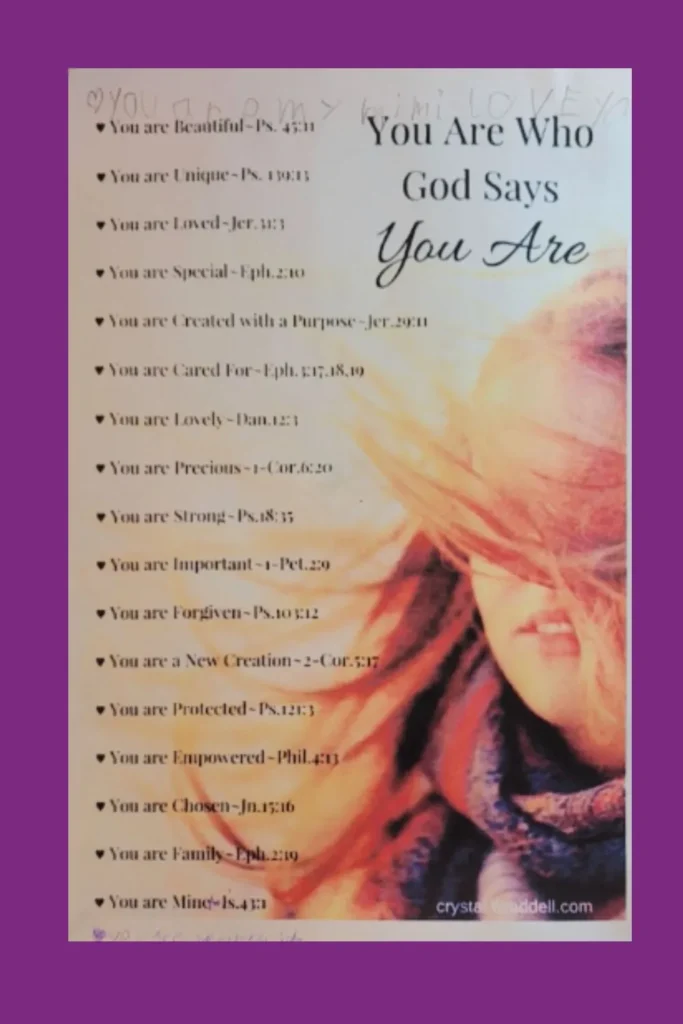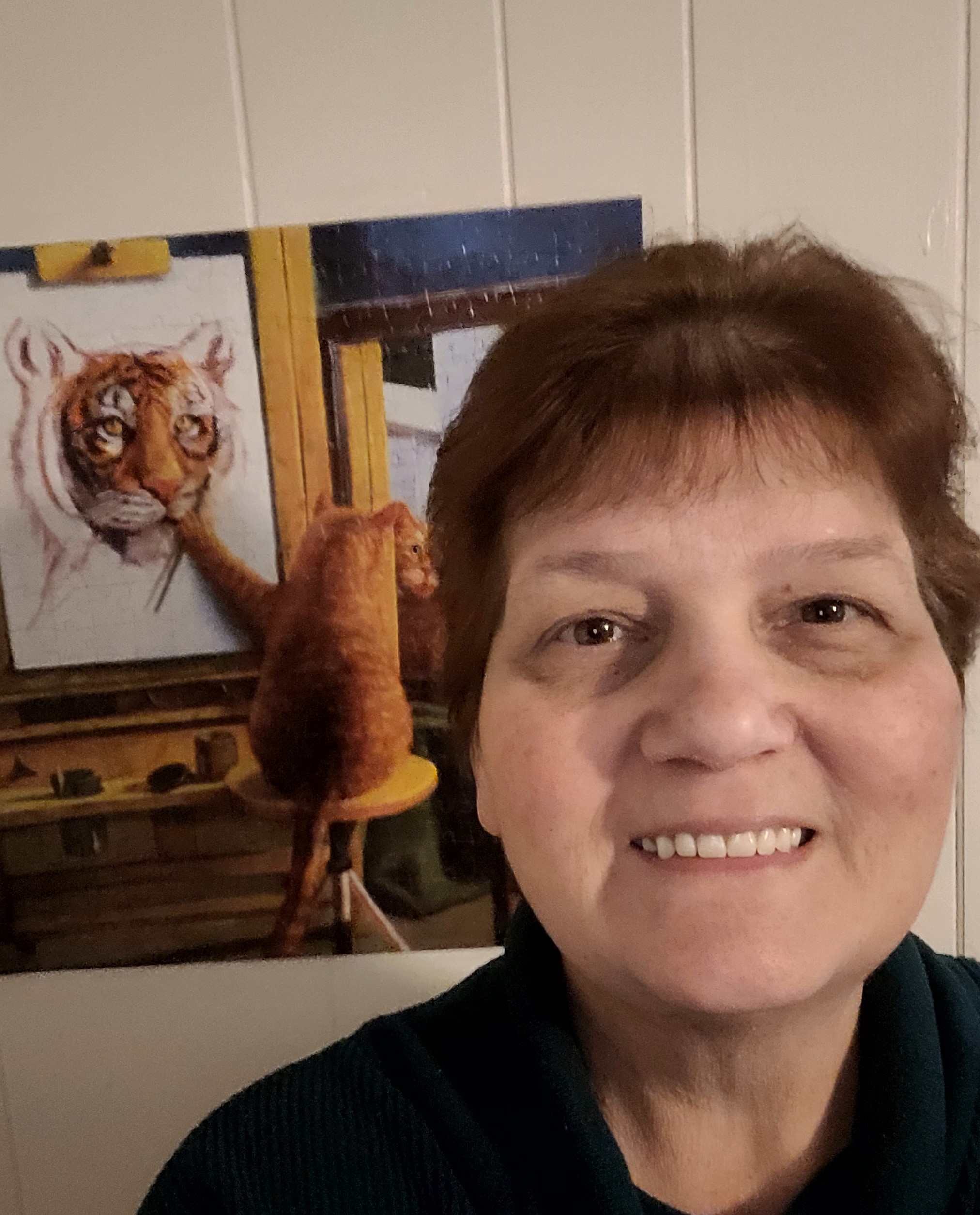Learn why you feel guilty after eating and overcome it with nine powerful Bible verses to guide you to greater self control and spiritual resilience in life.
Do you feel guilty after eating?
You’re not alone.
I would usually eat on track with healthy choices for breakfast and lunch. Then 2 pm would hit. Usually, I would feel like I was in a slump or stressed at work and deserved a “treat,” so I would grab a bag of potato chips and a candy bar. An hour later, I would realize I had eaten all the chips and the candy bar and wanted more.
I would get so frustrated with myself for not staying on track with my eating. The guilt would set in, and it would bring some shame, embarrassment, and self-hatred along with it.
Why couldn’t I eat like everyone else does, and make healthy food choices?
Why didn’t I have just a little more self-control?
Then the negative thoughts would really kick in.
I would tell myself,
- “You are no good.”
- “You can’t do this.”
- “You will fail as you always do.”
These were the lies of the enemy. They were not from God, they were not the truth.
But when you are stuck in this cycle, the guilt hits hard and it’s relentless.
When I told myself that I couldn’t do this and I would just fail, I then acted as if I couldn’t do this and would fail.
I would then reach for more “treats” as the day went on, because I had already failed, what was one more and one more and one more? I told myself that I could do better next time. Meaning the next day. Spoiler – I didn’t.
I dug myself a hole so deep that I sat at the bottom of it weighing 349 pounds. I couldn’t climb out, because I couldn’t even see the top of the hole anymore. Thank God, this is not where my story ends.
That is when God said to me,
“I can do all this through Him who gives me strength”
Philippians 4:13
There is hope. There is a way out. God will provide you with a ladder to help you climb out.
If you want to climb that ladder and find out how not to feel guilt and shame after you eat, please read on to see the 5 steps I practiced to help me trade my guilt for grace.
Step 1—Figure Out Where The Guilt Is Coming From
Is all guilt bad?
No, there is helpful guilt that protects you from harming your body and brings you closer to God. It can help promote a healthy relationship with God and food.
Then I will return to my lair until they have borne their guilt and seek my face— in their misery they will earnestly seek me.”
Hosea 5: 15
In this Scripture, guilt is not fun, but it serves a purpose to bring us to God. Once we are with God, we can go on our journey to food freedom.
How do we know if the guilt we feel is good or not?
If your feeling of guilt leads you to shame, embarrassment, and self hate it is not a beneficial guilt.
These feelings of shame, embarrassment and self hate can lead to eating disorders, decrease mental health, and to negative emotions resulting in emotional eating.
Why do we feel guilty?
Guilt arises when we have assessed a situation and feel that we have done something “bad”.
Diet culture tells us that broccoli is “good” and a brownie is “bad”. That chicken breast is “good”, but a potato is “bad”.
We have been taught to label all foods, so it makes sense, in society, that when we eat a “bad” food we feel guilty.
Social media does not help in this area, as we see people posting pictures of all their healthy food choices and successes with weight loss. We don’t see the real behind-the-scenes stories.
We can also feel guilty because maybe when we were young we were teased about eating too much, which felt like a bad character flaw in ourselves.
I remember being about 11 years old. My family and I were sitting at the dining room table eating dinner. There were 2 meatballs left and my father said, “Give them to Tammy, she’ll eat them.”
I had already eaten dinner and was satisfied, but my dad said I would eat them and so I did.
Now, when I eat more than I am satisfied with, I feel guilty.
Why in my 20s, 30s, 40s, 50s was I still listening to my dad’s voice? “Give them to Tammy, she’ll eat them.”
Because I still believed that this was my “bad” character flaw. This was my identity.
A key reason why we feel guilty is that Satan always wants us to be isolated.
He wants us to be frozen with guilt so that we do not repent and move on, but cycle into what we see ourselves to be, which after guilt is not positive.
Satan wants us to turn to our favorite foods for comfort and not to turn to God.
Satan attacks our identity in Christ. He wants us to be isolated from God. Just like he wanted Jesus to be isolated from God as Jesus prayed before He was taken to be crucified. Satan tempted Jesus to get Him to go against God. Jesus did not succumb to temptation.
Why does Satan want to isolate us from God?
As we see in Proverbs 18:24:
“One who has unreliable friends soon comes to ruin, but there is a friend who sticks closer than a brother.”
Proverbs 18:24
God is the one who sticks closer than a brother, and Satan does not want us near Him.
So Very Blessed website has fantastic information on guilt versus shame to continue your knowledge in this area.
Step 2—Practice Eating Treats
We see that part of our guilt can come from labeling foods “good” and “bad”. There are no “good” and “bad” foods. Some foods may be more beneficial, but it does not make other foods “bad”.
A healthy diet does not consist of particular foods, it is foods that we are in control of and plan for; not foods that control us.
I always thought chocolate was a “bad” food and whenever I gave in and ate chocolate that made me a bad person.
Then God showed me:
“For it doesn’t go into their heart but into their stomach, and then out of the body.” (In saying this, Jesus declared all foods clean.“
Mark 7:19
I needed to find helpful guidance that would show me how to remove the labels of “good” and “bad” from my foods.
I found Faithful Finish Lines 2.0, a Christian weight loss program, that does not only focus on weight loss, but focuses on renewing and strengthening your relationship with God.
This program focuses on growth and food freedom through Christ. They teach members to pause and pray before eating, and to plan treats intentionally.
Yes, plan to eat a brownie (or any treat you love).
This is so foreign to what diet culture has shown us, but it works. When you plan in your treat and eat on your plan, you can say that you ate on plan, there is no guilt. You have done nothing “bad”.
You remove the stigma of certain foods as being “bad”. A brownie is just food, nothing more.
You take the power away from the food and give that power to God.
At first this practice was so unfamiliar that I was scared. Oh no, if I eat 1 brownie, I’ll for sure eat 12. The food had such a hold on me, that I was scared of trusting myself around food.
I was encouraged to try with a treat that wasn’t as addictive for me.
My first planned treat was a potato. I know, that sounds ridiculous, but I had learned that potatoes were all carbs and “bad”. I ate potatoes, but would always feel guilty after. I wanted a potato without the guilt.
I planned for a potato for the next day’s snack. Not just a potato, but one with cheese and butter on it. I couldn’t wait till the next day.
I ate my potato and loved it. The guilt started to come and I stopped it. There was no reason for guilt. I ate what was on my plan, it fit in my calories and with my program. I continued on with my plan.
I would get cravings for brownies (yes, they were my weakness). When the cravings came and a brownie was not on my plan, I would pause. Stop for a mindful break,
- “Is this item on my plan?”,
- “Will this item help me reach my goal?”
Then I would pray, pray for strength and guidance in making wise choices.
Then I would plan. Each night I would plan my next day’s meals/snacks.
So, I would add on the next day that for a dessert or snack I would eat a brownie. I had to fit it into my program’s allowed points/calories/macros and plan it in.
This ended my craving. I knew I could have it the next day. No guilt. No shame. No embarrassment. No self hate.
You will learn much more in depth information about pause, pray, plan and specifically planning in treats in Faithful Finish Lines 2.0.
Step 3—Plan Well
When you do not plan and you give in to cravings, the guilt will follow. Planning and staying on plan will help the guilt to ease.
Pray.
Pray about staying true to boundaries and staying true to what works for your unique body.
“Above all else, guard your heart, for everything you do flows from it.“
Proverbs 4:23
“I have the right to do anything,” you say—but not everything is beneficial. “I have the right to do anything”—but I will not be mastered by anything.”
1 Corinthians 6:12
Plan, so that you are not mastered by a craving, but allow God to be in control.
You will discover what works with your unique body.
I encourage you to prioritize growing closer to God. Use Him as your counselor. Seek answers from Him. Faithful Finish Lines can help to guide you in the specifics of this process.
Once I grew closer to God and learned to rely on Him, I started to see the ladder He was providing for me to climb out of that hole I had been digging for myself.
I couldn’t just start climbing, though. I needed to plan, with His help.
Plan:
- To Pray.
- To Rely on God.
- To write out your daily meals/snacks the night before.
- To include a treat at least 3 days a week.
- To grow each day in your relationship with God.
Step 4—Ask God For Guidance In Your Eating
During prayer, ask God for His guidance in your eating.
“I will instruct you and teach you in the way you should go; I will counsel you with my loving eye on you.”
Psalm 32:8
We will eat what is not on our plan sometimes. We are human. Mistakes are okay. They provide ways for us to learn and grow.
When we do make a mistake, trading that guilt that comes for God’s grace is the best thing we can do (Faithful Finish Lines 2.0 can wall you through exactly what that process looks like).
Replacing food guilt with God’s grace increases and strengthens your relationship with Him.
You’ll notice that you start making better food choices, not because you have to, but because you feel compelled to.
You will be partnering with God, and speaking to Him more. He will be filling your spirit and soul. Your mind and emotions will get healthier and happier.
Letting go of the guilt is the best thing for your relationship with God, for your body, and for what you eat.
“But he said to me, “My grace is sufficient for you, for my power is made perfect in weakness.”
2 Corinthians 12:9
My journey was unique, just as yours will be.
My first step was to strengthen my relationship with God. To learn to trade my guilt for His grace.
For me, God revealed that I needed an extra tool to help with weight loss. I needed to also have bariatric surgery.
I needed God’s grace to go through with surgery. Society had spoken that this was not an “honest” way to lose weight. This was the “easy way” and wasn’t respected.
“But because of his great love for us, God, who is rich in mercy, made us alive with Christ even when we were dead in transgressions—it is by grace you have been saved. And God raised us up with Christ and seated us with him in the heavenly realms in Christ Jesus, in order that in the coming ages he might show the incomparable riches of his grace, expressed in his kindness to us in Christ Jesus. For it is by grace you have been saved, through faith—and this is not from yourselves, it is the gift of God— not by works, so that no one can boast.”
Ephesians 2: 4-9
Sitting at the bottom of my self-dug hole I called on God. I needed His grace and wisdom to allow me to see the truth of what my body needed.
I needed to trust God.
“In you, Lord my God, I put my trust. I trust in you; do not let me be put to shame, nor let my enemies triumph over me.”
Psalm 25: 1-2
“But I trust in you, Lord; I say, “You are my God.”
Psalm 31: 14
Step 5—Grow Your Confidence In Christ
Who are you in Christ?
I have shared this in another article, but I don’t believe that we can see this enough. Please post this where you can see it daily.
You will see handwritten words at the top and bottom, this is from my daughter and granddaughter. I pray it helps to remind you that you have people – family, friends cheering you on, loving you, and knowing you are worth it.
Your worth does not come from being perfect. It comes from your identity in Christ.
Do not let the enemy steal your identity in Christ through guilt.
Own your mistakes, trade your guilt for God’s grace, and move on.
Let God take your weaknesses and make you strong.
God took my weaknesses, He made me strong.
He helped me up each rung of that ladder. I have lost 140 pounds. I have my hands on the top of that hole I dug and clearly see the way out.
“ No temptation has overtaken you except what is common to mankind. And God is faithful; he will not let you be tempted beyond what you can bear. But when you are tempted, He will also provide a way out so that you can endure it.”
1 Corinthians 10:13
More Post To Help You Stop Food Guilt:
A Weight Loss Prayer For Emotional Eating
Tammy Carnevale has been a member of Faithful Finish Lines 2.0 since January of 2020 and has lost 125 so far, bringing her starting weight of 349 pounds down to 224 pounds. She also manages her Autoimmune Hemolytic Anemia with the tools she has learned in FFL program. Her passion is to use her writing and her own experience to help and support other women on their own weight loss journeys and managing chronic illness.




